After more than 7 years, KUNO coordinator Peter Heintze will leave KUNO
You are about to leave KUNO, how does that feel?
Yes, the feeling I had last week (my last week at KUNO) was wistfulness and pride. It touches me that I have to leave KUNO behind. It really did become a precious project over the years. We started from scratch and today there is an organization with a relevant program, an impressive track record and a solid reputation. It has really grown. I have to let go of that now, and say goodbye to my colleagues.
How did KUNO start?
It started in 2016 when the World Humanitarian Summit was upcoming. There were a number of professionals who wanted to come together to discuss big issues at stake within the ‘Dutch’ humanitarian sector, before the start of the Summit. The process of organizing a Dutch ‘pre-Summit’ proved to be very complicated, but the gathering itself turned out to be a wonderful day. As many as 400 Dutch humanitarian professionals participated. During this meeting, people started talking about the challenges of humanitarian work and new ways of working were explored. Also, the question arose as to why it had been so difficult to organize dialogue in this way in the Netherlands. That was the day that people started thinking of creating a humanitarian platform to facilitate critical constructive dialogue.
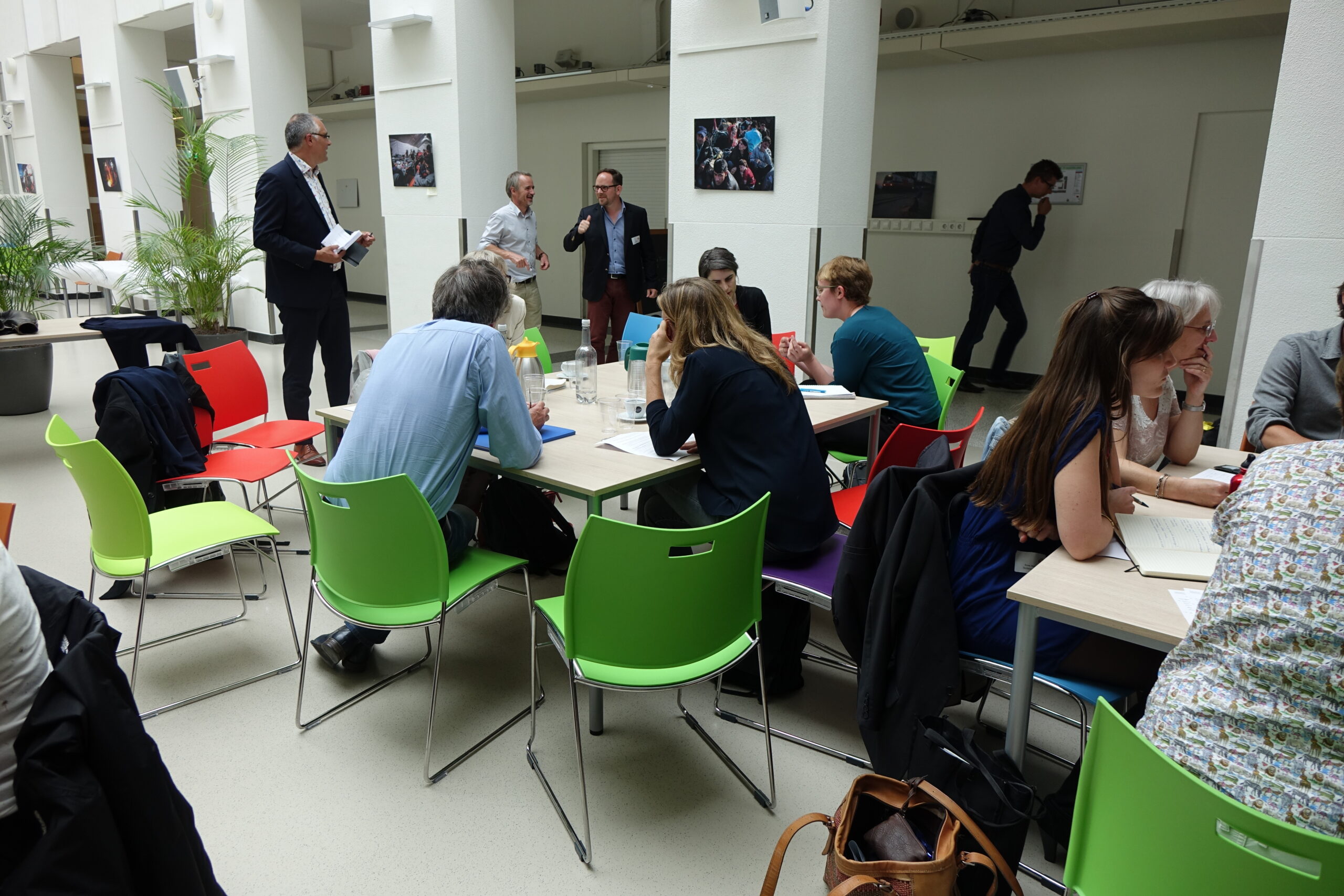
What was your ‘dream’ or goal when you started as coordinator of the platform?
I saw the job posting and really liked it. I have a journalism background and have done a lot with policy influence and with knowledge exchange. I loved the facet of networking, monetizing knowledge, co-creating new insights and new ways of working: innovation! And this time not by investing in new knowledge, but by building on existing knowledge from practitioners, policy makers and academics. The concept became clearer overtime: KUNO must facilitate innovation by posing the right questions to the right people – in a safe environment; I found it an incredibly beautiful challenge. And I think it worked out well. KUNO is certainly a place where thoughts can be exchanged very critically and openly. And KUNO appears to be a place where relevant humanitarian professionals want to go to for these critical conversations and expect to be challenged.
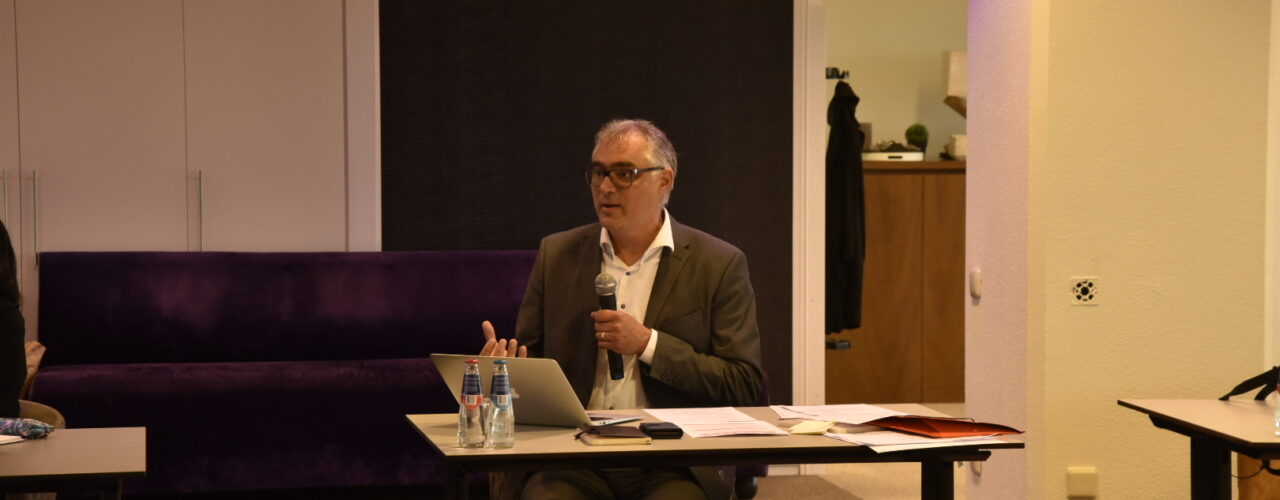
What were your highlights of your work at KUNO?
I think KUNO conversations harvested innovative ideas and explored new ways of working by challenging key players from the humanitarian sector (in the Netherlands). This is truly visible in our in-depth series on, for example, decolonization of aid and the Afghanistan series.
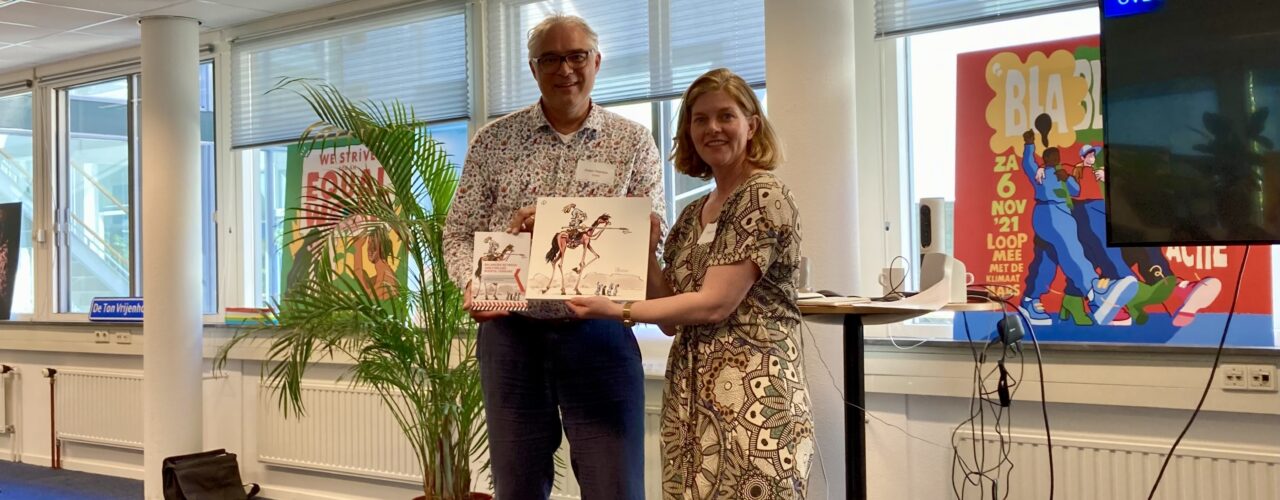
What have you learned in your time as coordinator?
What I did not expect before I started at KUNO is that more than half of my time as coordinator was needed to engage in partnerships. The partnership that supports KUNO, or a partnership that co-created an in-depth series, or a single learning session. This requires quite some effort. In order to learn together, you have to first understand where you need each other and where you get in each other’s way. This calls for an open mind; an open attitude. Furthermore, there is a need to have a common understanding on what we mean by ‘learning’. I learned that most often ‘learning’ is not about e.g. explaining how we should better operationalize our activities, but that it starts with listening – or the willingness to listen. That is what you do in a partnership: talk and listen.
What are you going to miss and what not?
I’m going to miss my colleagues a lot. What I also really enjoyed is the network and the people I got to work with. I really enjoyed working in a network which consists of people all over the world, discovering together which problem we wanted to highlight, how the issue needed to be framed and addressed, and who we needed to start the conversation.
What I can miss like a toothache is that when it becomes hard to get people moving: that constant pulling on an almost dead horse. Sometimes you really wonder if it’s all going to work out because you have to work so hard in getting people on the same page. That did not always come naturally and that took a lot of energy. But once we succeeded and an event became a success, you forget quite quickly the effort it took.
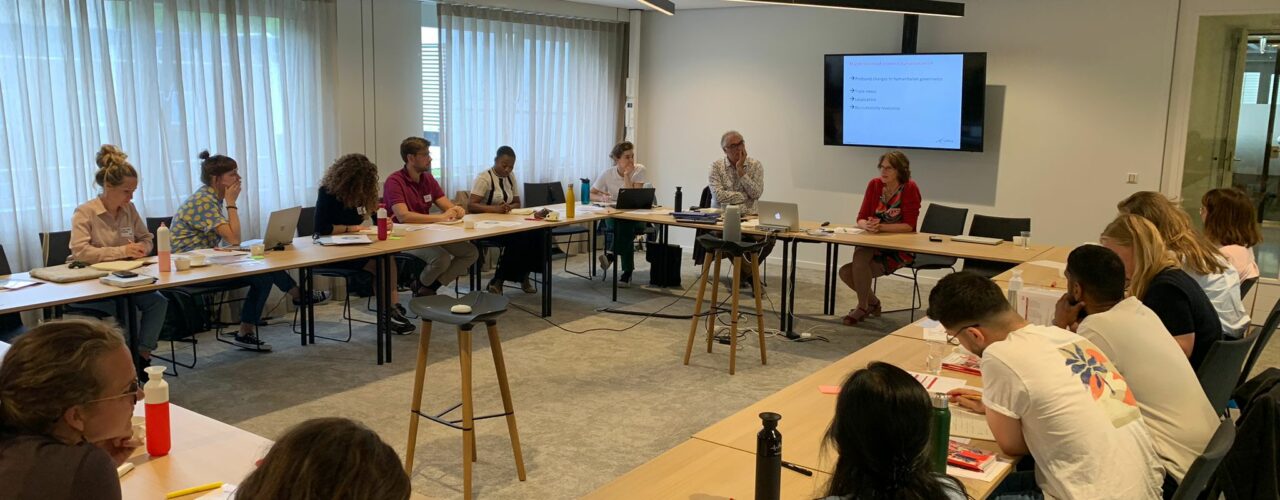
What will be your next challenge?
I will be working at Free Press Unlimited. They have a great slogan, in fact it is their formal vision: People deserve to know. People deserve to know what is going on – and in a lot of places in the world that’s not the case. I will work as team leader Safety of Journalists, a program supporting journalists under threat. I think that is a very clear mission that is extremely necessary and I am very happy to be part of it.
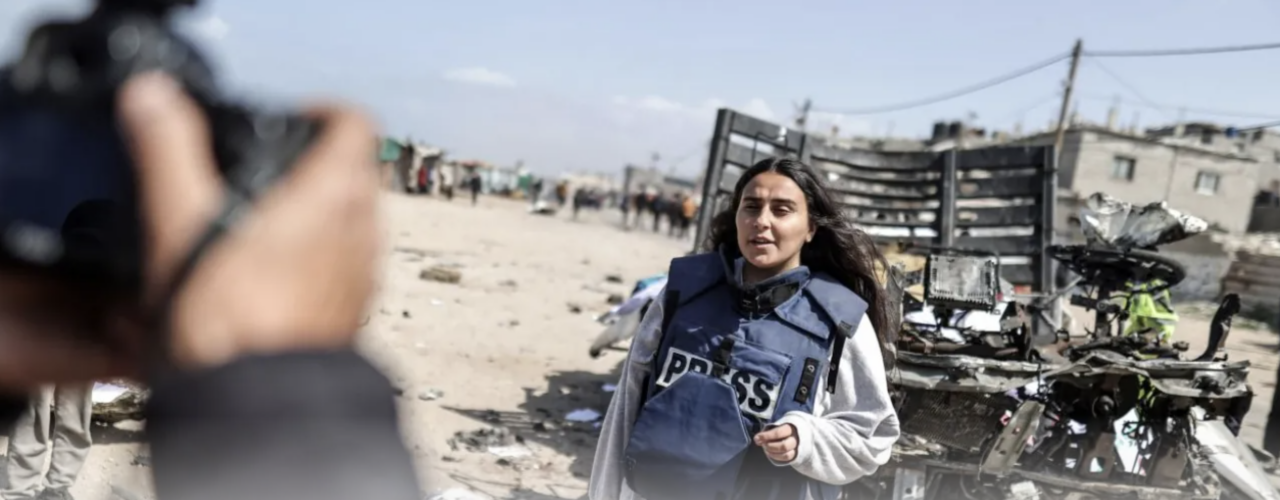
What is your wish for this sector?
That organizations dare to keep looking critically at themselves and keep listening to who we say we do it for. In fact, I think we need to do that even better.
Peter Heintze was the first coordinator of KUNO. He built the KUNO programme and expanded the KUNO network, both in the Netherlands as internationality. Over seven years, KUNO became an valued partner for learning and reflection: a place where humanitarian stakeholders – from both the ‘Global North’ and the ‘Global South’ – had open and critical conversations about the delicate and complex humanitarian practice.
Peter is a historian (international relations) by education and began his career as journalist. For fifteen years, he worked for Dutch National Radio. As foreign reported he reported from countries such as DR Congo, Suriname, Turkey, China, Bosnia & Herzegovina, Ghana, and many more. After his journalistic career, Peter worked for international NGOs, where he fulfilled a role as knowledge broker between practitioners, policymakers, academics and politicians. In September 2024, Peter will start at Free Press Unlimited as leader of the team Safety of Journalists.
We as the KUNO colleagues are very thankful for all Peter did for the sector and wish him all the best in his future plans.
Date: 10 september 2024
Author: Marianne van Elst-Sijtsma
